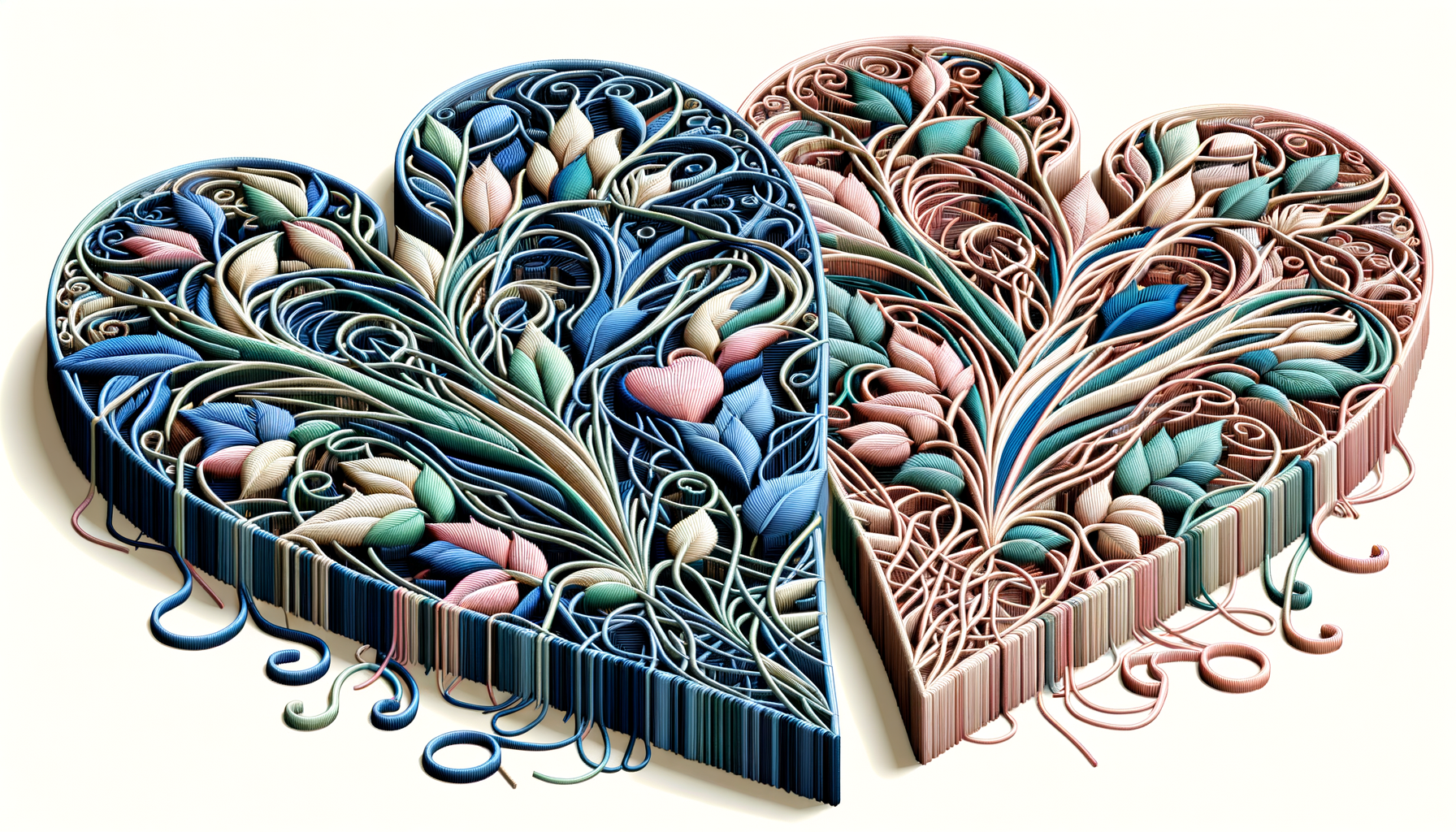If you’ve ever worked a wine harvest—or even seen a crew hand-pick grapes at the crack of dawn—you know it’s not exactly glamorous. It’s gritty, unpredictable, and edges dangerously into chaos. Kind of like relationships. And yet, every single year, thousands of us march back into the vineyard (or, metaphorically, onto the battlefield of love) for another round of late nights, early mornings, and reckoning with our deepest fears.
In my case, the fear I’m talking about isn’t large, loud, or obvious. It’s not arachnophobia or speaking at a best friend’s wedding without a glass of Syrah in hand (though both rank relatively high). No, the thing that scares me the most is far quieter: vulnerability. The truly terrifying thought of showing all of my awkward bruises and mismatched edges to another human being and hoping, somehow, they don’t run for the hills. Vulnerability. Intimacy. Letting myself be seen.
And yet, I do it anyway—even though it often feels like free-falling off a very tall oak barrel. Because here’s the thing: vulnerability, as much as it terrifies me, is also the thing that makes relationships worth showing up for. So, let’s explore why (and how) we can all keep diving in, fears and all.
Fear Looks Good in Jeans but Cuts Deep
If you’ve ever nervously over-analyzed why someone took twenty-three minutes to text back (not fifteen, not thirty—but twenty-three!), congratulations—you’ve encountered the Casual Embarrassment Spiral™. Vulnerability has this nasty habit of making little things feel way bigger. “Do they like me?” becomes “What if everyone I’ve ever dated was faking it, and my existential loneliness is catching on as a trend?”
When fear isn’t lurking in vague text bubbles, it sneaks in while you’re debating whether to press send on a hilariously weird meme or admit you used to rank Disney princes by romantic potential (it’s Flynn Ryder, obviously, but that’s another story). Fear tells us we have to be cooler, less complicated, and easier to digest if we want someone to stay interested.
The truth? Nobody falls in love with someone they can’t actually see. You don’t stargaze on a cloudy night; you do it because the sky is wide open. Vulnerability makes us visible. Fear masquerades as our protector, but really, it’s just hiding the part of us that someone else might adore.
What I Learned on the Vineyard
Growing up in Napa, I thought I understood the whole wine-making deal pretty well. But it wasn’t until I worked my first real harvest that I felt the paradox that comes with taking risks. There’s nothing like spilling grape juice all over your boots to teach you life lessons, and here’s one I can’t stop applying to relationships: only fragile things grow.
Vines are a masterpiece of vulnerability. They stretch, twist, tangle, and leave themselves open to wind, frost, and rain—all in the hope of bearing a harvest. The best wines come from vines that struggle, the ones perched on rocky soils or weathering tough climates. In other words, their scars make them extraordinary.
People? We’re not so different. Vulnerability is the stretch, the risk. And like those vines, it’s critical to growing something meaningful. Sure, there’s always the chance a storm might roll in or your metaphorical fruit gets rejected (read: ghosted after three promising dates). But there’s also the chance you create an emotional vintage worth savoring.
How I Keep Doing It (Even When It Scares Me)
Let’s get practical, because I know it’s all too easy to wax poetic about vulnerability while conveniently avoiding it (raises hand guiltily). If you, too, struggle with the art of emotional bravery, here’s what keeps me walking into the vineyard—and the scary truths about myself—I’d rather avoid:
1. Shift Toward Curiosity
Instead of viewing vulnerability as a minefield, imagine it’s a culinary experiment. Sure, putting truffle oil on popcorn could be a regrettable choice. But it could also be a revelation. The only way to know? Try it. Ask that question you’ve been holding back. Share a slightly-too-honest thought (if it’s kind). It reframes the whole process as trial and error, not success versus failure.
2. Own Your Awkwardness
True story: I once snorted water out of my nose in front of someone I was trying to impress. Did I wish, in that moment, the earth would swallow me whole? Absolutely. Did we end up bonding over my ability to be human? Somehow, yes. The less we treat our imperfections as liabilities, the more they become icebreakers instead of dealbreakers.
3. Lean on Rituals
I find cooking downright meditative. Whether I’m stirring lemon zest into a risotto or arranging figs and goat cheese on a crostini, these small, tactile routines anchor me. When emotional stakes feel sky-high, a grounding ritual—be it yoga, music, or making lavender tea in my favorite chipped mug—reminds me to breathe. A moment of stillness makes leaping into vulnerability much easier.
4. Let Timing Be Imperfect
Y’know when you ask someone “How’s your day going?” before you realize the ink stain on your hand has smudged onto your cheek? Vulnerability has impeccable timing (note sarcasm). It shows up when you’re least polished because that’s when it’s real. Let it. The right people will find your less-than-perfect timing endearing.
Why I Keep Showing Up
So, why even bother with all this introspection and heart-on-sleeve business? Because the moments when I’ve dared to lean into fear—tears, jokes, quirks, and all—are the moments that have shaped my closest connections. Vulnerability doesn’t guarantee relationships will last, but it does guarantee they’ll be honest while they do.
Every time I think about bowing out of the messy truth-telling part of relationships (or life), I remember the wine harvest. I remember the stained boots and the thrill of tasting something that only existed because a team of people—and a lot of grapes—were willing to go through the wild, uncertain process. There’s a kind of magic in that, don’t you think?
So, here’s my reminder to you (and to me): vulnerability might be scary, but it’s also the only way we grow. You’ll manage to find your footing—even if it looks clumsy, even if your courage feels paper-thin. Keep showing up anyway.




















